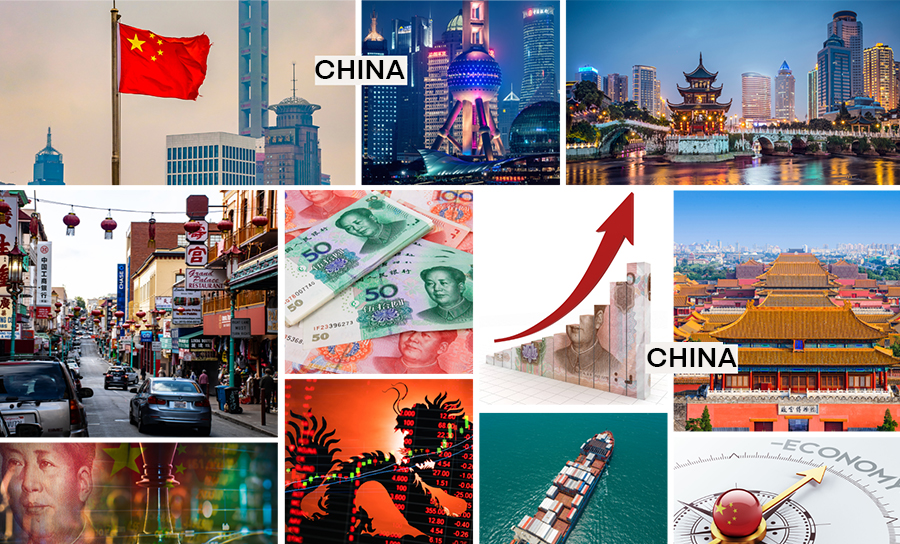
Are you ok with optional cookies ?
They let us give you a better experience, improve our products, and keep our costs down. We won't turn them on until you accept. Learn more in our cookie policy.

Investment in real estate has long been regarded as a rewarding option for those looking for steady income and ways to increase their wealth. Although investors have always preferred established markets, emerging markets have attracted a lot of attention recently because of their potential for faster development and more attractive returns. However, investment in emerging countries has unique risks and opportunities that should be carefully weighed before proceeding.
We explore the different risks and opportunities that investors should be aware of as we dig into the realm of real estate investment in emerging economies. Let us examine the elements that make emerging markets alluring, including accelerated urbanisation, changing demographics, and expanding economies.
Investors may confidently navigate the changing world of real estate investment in emerging economies by developing a thorough awareness of the risks and opportunities. This article will give you invaluable insights to make the most of the always-changing world of real estate investment in emerging economies, whether you are an experienced investor trying to diversify your portfolio or a beginner exploring new horizons.
Real estate in emerging markets presents a promising avenue for investors due to the combined forces of expanding economies and demographic shifts. These markets hold high growth potential as their developing economies and rapidly growing populations create robust demand for both residential and commercial properties. The increasing urbanisation and rise of young, aspirational families seeking affordable housing options further fuel the demand for real estate in these regions. By capitalising on the growth potential driven by these factors, investors can position themselves for lucrative opportunities and long-term wealth-building prospects in the ever-evolving landscape of emerging market real estate.
Because of their sound banking systems and economic reforms, some emerging markets, such as Turkey and India, show resilience in financial crises, making real estate investments safer. International real estate companies find opportunities in nations like China that have favourable policies and incentives for foreign investors.
Because there hasn't been a lot of real estate development in emerging markets, there are opportunities for investors to meet the demand that is growing and fill in the gaps in the market. Additionally, some emerging markets might see less competition, allowing investors to spot and capture special opportunities.
In many emerging nations, rapid urbanisation and weak infrastructure are driving up demand for real estate in key cities and driving up prices.
Real wages that are rising and a hedge against inflation might boost construction costs in emerging nations, which could raise real estate values and produce capital returns for investors. In several emerging nations, real estate has also historically served as a hedge against inflation by yielding returns that are larger than the rate of inflation.
Real estate investing in emerging markets can provide diversification advantages because it has a low correlation with other asset classes, which lowers overall portfolio risk for investors.
To make wise and strategic investment decisions, investors exploring real estate opportunities in emerging nations should carefully evaluate these possible benefits. Even though there are risks involved with investing in any market, developing market opportunities can be attractive for investors looking for greater growth potential and portfolio diversification.

The COVID-19 pandemic and geopolitical unrest continue to present obstacles, but China's real estate industry remains one of the biggest and most dynamic in the world. Strong demand for residential, commercial, and office properties has been fueled by the nation's strong economic growth, quick urbanisation, and expanding middle class. While the industrial sector draws investors looking for possibilities in logistics hubs, warehouses, and manufacturing facilities, major cities and metropolitan centres in particular demonstrate considerable demand for residential assets. Additionally, the demand for excellent commercial spaces by domestic and foreign companies looking to expand their operations is fueling the growth of the office property market.
The Chinese government has made a concerted effort to entice foreign investment by liberalising foreign ownership restrictions, opening up its banking system, and integrating Chinese bonds and stocks into international indices. These measures have improved market access for foreign investors and raised the attractiveness of the nation for foreign direct investment. Real estate investors hoping to profit from China's ambitious projects and economic progress have additional opportunities thanks to the government's focus on infrastructure development, urbanisation, and sustainable growth programmes. However, navigating the complexities of the Chinese real estate market demands considerable thought and due research because successful investment endeavours in this vibrant and attractive market depend on an awareness of local rules, market dynamics, and potential risks.

India is another emerging market that has shown resilience in the face of the pandemic and has attracted significant foreign capital into its real estate sector. India has a large and young population, a fast-growing middle class, a rapid urbanisation rate, and a supportive government that has implemented various reforms and initiatives to boost the real estate industry. Some of the sectors that have potential for growth include affordable housing, logistics, data centres, co-working, and student housing.
Investing in real estate in India, as an emerging market, carries risks for both foreigners and Indians. High initial investment, illiquidity, market volatility, regulatory challenges, and tenant-related issues are potential drawbacks. Maintenance costs, project delays, economic and political risks, and a lack of transparency add to the complexities. Careful risk assessment, due diligence, and market awareness are essential for successful investments.
.jpg?1690951306357)
Turkey, is positioned between Europe and Asia, has recently experienced financial difficulties and political unrest. Despite these difficulties, the country has proven resilient and adaptable. Its broad economy, which includes industries like textiles, automobiles, agriculture, and tourism, has aided in the country's expansion as a whole. The young and educated workforce in Turkey also appeals to enterprises looking for qualified labour. Real estate and construction investors have attractive opportunities due to the increasing demand for housing and infrastructure development brought on by an expanding population and urbanisation.
For value-added and opportunistic investors, Turkey is still a compelling investment opportunity. Exploring distressed assets, managing currency swings, and taking advantage of market inefficiencies are all made possible by the dynamic economic environment. Identifying undervalued assets and grabbing growth possibilities can result in significant rewards as the nation continues to recover and adapt. Turkey offers an attractive destination for investors interested in emerging market potential because of its strategic location, diverse economy, skilled labour force, and strong demand for housing and infrastructure.
.jpg?1690951378333)
With its strong and thriving economy, Poland serves as a model of stability and resiliency in Central and Eastern Europe. A strong domestic market that supports consistent growth and serves as a base for economic stability is what underpins its success. The country's export base is well diversified, which adds to its economic strength and resistance to external uncertainties.
One of Poland's greatest assets is its stable and well-managed banking system, which promotes business and investment growth and assures financial stability. Furthermore, the nation's budgetary situation is sound, a reflection of competent government and good financial management.
Poland's real estate market is a valuable asset that stands out for its high-quality properties and open regulations. Due to attractive yields and a variety of options in industries that have performed very well, such as logistics, residential, office, and retail, investors are drawn to the market. The real estate market in the nation is still a desirable location for both domestic and foreign investors looking for reliable profits and long-term growth potential.

Competition from mature markets, particularly the UK, presents a challenge to real estate investments in emerging markets. Due to its regulated and compliant real estate market, the UK stands out and is a safe and popular alternative for investors. HMO prospects and student housing provide steady rental revenue and excellent yields. Despite the allure of emerging nations, investors seeking high returns find the UK to be a fascinating location due to its strong economy and wide range of real estate opportunities. Making educated judgements between developing and developed markets requires a careful assessment of risk tolerance and investment objectives.
According to research by the IMF, the following are a few risks involved with investing in real estate in emerging markets:
Economic volatility and political risks pose significant challenges to real estate markets in emerging countries. These markets are more susceptible to sudden economic downturns and uncertainties, which impact property values and investor sentiment. Political instability, policy changes, and geopolitical tensions can create an atmosphere of uncertainty, discouraging long-term investments in real estate. Moreover, reduced consumer confidence during such periods can lead to decreased demand for residential and commercial properties. Investors must carefully assess and mitigate these risks to navigate the dynamic landscape of real estate in emerging markets successfully.
The lack of transparency in real estate transactions and prices can make risk assessment difficult, and there are concerns about liquidity for emerging market real estate investments.
Developing economies have expanding populations, and real estate investing presents profitable options with enormous growth potential. International real estate companies are drawn to certain areas because of their relative stability and welcoming investment environments. Investors must, however, overcome regulatory uncertainties, political risk, and economic instability. To take advantage of these opportunities while avoiding potential problems, thorough research, local alliances, and risk management are crucial. Investors can unleash the potential for financial growth and wealth creation in the dynamic world of emerging market real estate by taking a complete approach.